
When the Nigerian Communications Commission (NCC) declared two mobile operators as the dominant players in the Nigerian telecommunications market, few subscribers and stakeholders thought the decision could lead to a return to the regime of monopoly that stunted the growth of the sector before the GSM revolution commenced in 2001.
In June 2012, following the first exercise two years earlier which produced no positive result, the NCC embarked upon what it described as the “Study of the Assessment of the Level of Competition in the Nigerian telecommunications industry.” The broad market segments considered in the survey included Voice (Mobile and Fixed), Data (Mobile and Fixed), Upstream and Downstream. According to the findings, there are no dominant operators yet in the fixed mobile, fixed data and downstream market segments.
For voice data, MTN, which had about 47.4 million subscribers (about 43.57 per cent market share), as at December last year, was declared the dominant operator. The network, which commenced operation at the launch of the GSM liberalisation in 2001, was also announced as joint dominant operator in the upstream segment. The other network so declared is Glo, which launched its services in 2003 and had about 24.1 million subscribers (about 22.15 per cent) as at December 2012.
Going by its findings, NCC declared that there are concerns in the two market segments. For mobile voice, it states that the segment is not “effectively competitive.” Fundamentally, NCC expressed worry about the “wide differential (of about 300 per cent) between on-net and off net calls.” It goes further to warn that “this is indicative of the likely establishment of a calling hub for MTN subscribers.”
Although the regulatory agency stated that the dominant operator in the mobile voice market should, among others requirements, collapse on-net and off-net retail tariffs immediately, the contrary is the case. At the moment, MTN is yet to comply with the NCC directive. Its booster weekly prepaid charge, for instance, offers MTN-to-MTN calls at 10 kobo per second, while subscribers are charged 150 per cent more – 25 kobo per second – for calls to other networks. At 30 kobo per second for calls from the second minute till the rest of the day, MTN Super Saver off-net call rates are exploitative. There is a huge difference of 200 per cent as it charged 10 kobo per second for on-net calls.
Other operators make life easier for their subscribers when making calls outside their networks. For Glo, its Talk-Free pre-paid package, on-net calls cost 15 kobo per second and 18 kobo per second for off-net calls. SMS charges are the same N4 irrespective of whether the message is sent to within or outside the network. On Glo Hi-Flier and G-BAM Hi 5ive, subscribers enjoy same 18 kobo per second charge to any network within Nigeria. But Glo is also guilty of exploitation as it charged 10 kobo per second for on-line calls on Glo Gista but 30 kobo per second for off-net calls, while Glo 1derful rates for voice calls are 15 kobo per second for on-net calls and 25 kobo off-net.
Airtel has 2good Classic and Airtel Club 10, among other packages. For the former, voice calls have a flat rate of 18 kobo per second for calls to all national destinations, irrespective of the network. Airtel Club 10 requires subscribers to register 10 Airtel lines of family, friends or associates which would then enable calls to be made at 8.34 kobo per second. Calls to other Airtel numbers on this package cost 20 kobo per second on-net and 30 kobo per second off-net.
Etisalat has Easy starter, among its several packages. Calls to all networks cost 50 kobo per second, while Homezone calls are charged at 40 kobo per second whether on-net or off-net. On Easycliq, calls within the network at peak period cost 40 kobo per second and a minimal increase to 50 kobo per second for off-net calls.
Having commenced the Dominant Operator policy since May 1, the NCC is expected to have ensured compliance with the new regime, particularly in the area of pricing. In his recent announcement, NCC’s Director of Public Affairs, Mr Tony Ojobo assured that the regulatory agency would deploy all necessary procedures to ensure that both companies did not use their dominant positions in the industry to stifle competition. NCC said it had, therefore, put measures in place to correct current anti-competitive behaviours being practised by both dominant operators. In his words, “dominance, in itself, is not negative because it is an indication of the effectiveness, resourcefulness and strategic decisions of the operator. However, the conduct of the operator determines how its dominance would be perceived, particularly if that conduct is likely to substantially lessen competition and distort the market.”
As it is, being the dominant operator in the mobile voice market segment, MTN has devised a strategy to compel Nigerian subscribers to either migrate to its network or acquire new MTN lines. The large disparity between on-net and off-net calls also appeared to be a strategy to discourage MTN subscribers from making calls to other operators.
According to consumer rights advocates, there is cause for concern in this game of might is right as the subscribers would be the ultimate loser. Nigerians haven’t forgotten how they had to queue all day to make calls at NITEL offices and how they were reminded by their own Communications Minister that telephone service was not for the poor. Nigeria must not be allowed to descend to that better-forgotten past.
It is feared that if the call rates disparity is not quickly checked by the regulatory agency, the smaller operators might be discouraged from investing in the networks.
Given that the primary objective of NCC’s Study of the Assessment of the Level of Competition in the Nigerian telecommunications industry is to “ensure fair competition in all sectors of the Nigerian communications industry,” the regulatory agency is expected to work its talk in the interest of the subscribers and the telecommunications industry.
•Omotunde is a Lagos-based telecom analyst. • Photo shows NCC Executive VP, Dr. Eugene Juwah.

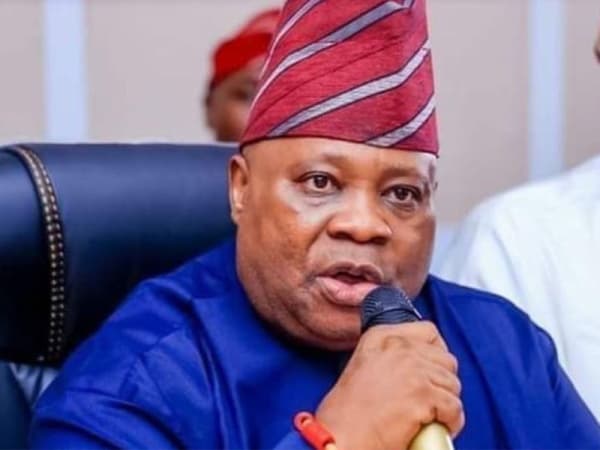
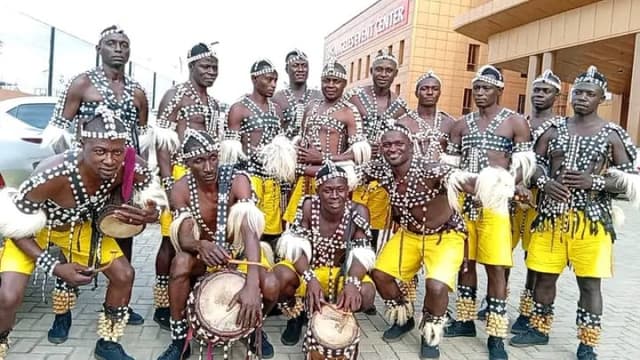











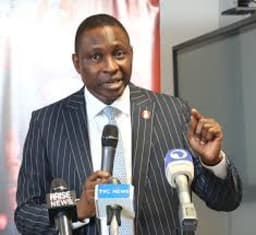

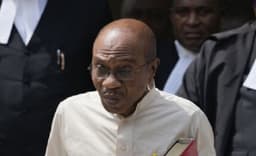




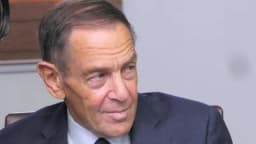


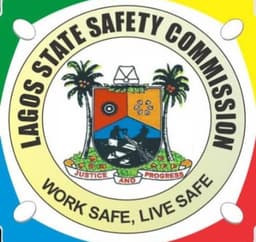


NEWS EXPRESS is Nigeria’s leading online newspaper. Published by Africa’s international award-winning journalist, Mr. Isaac Umunna, NEWS EXPRESS is Nigeria’s first truly professional online daily newspaper. It is published from Lagos, Nigeria’s economic and media hub, and has a provision for occasional special print editions. Thanks to our vast network of sources and dedicated team of professional journalists and contributors spread across Nigeria and overseas, NEWS EXPRESS has become synonymous with newsbreaks and exclusive stories from around the world.